Recently, an order was issued extending certain powers under the NSA to the Delhi police. Is this a special order? Have such orders been issued before in Delhi or any other state? Here is a detailed fact-check.
The recent order of placing Delhi under National Security Act (NSA) has become a talking point in the wake of on-going protests against Citizenship Amendment Act (CAA) in various parts of the city. While the Delhi Police clarified that it is a routine order has nothing to do with the current situation, many protestors, politicians, and organisations viewed it as a clampdown on the on-going protests under the garb of a draconian law.
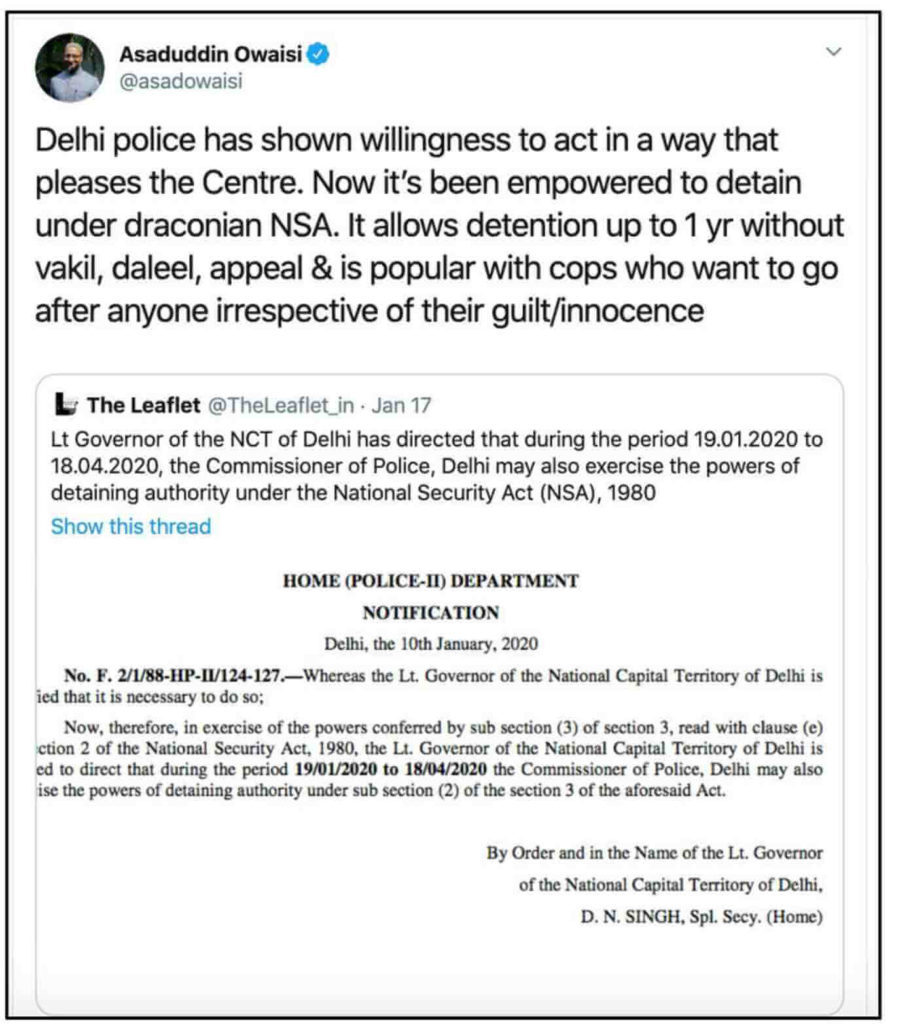
In this fact-check, two factors have been explored. First, whether the order of placing Delhi under NSA is consistent with the regular deployment exercise, as clarified by the Delhi Police. Second, if the same practice is undertaken in other Indian states.
The Delhi NSA order
Claim: The order extending certain powers under the NSA to Delhi Police is made in the wake of CAA protests and to detain protestors.
Fact: The recent order is a routine order. Such orders were issued regularly in the last three years. Moreover, such orders were issued in many other states, some of them not ruled by the BJP. Hence the claim is FALSE.
On 10 January 2020, the Lieutenant governor of Delhi passed an order authorising the Commissioner of Police to place the city under the National Security Act (NSA) for three months. The order reads that, “in exercise of the powers conferred by subsection (3) of section 3, read with clause (e) of Section 2 of the National Security Act, 1980, the Lt. Governor of the Nation Capital Territory of Delhi directs the Commissioner of Police, Delhi to exercise powers of detaining authority under the section (2) of the section 3 of the aforesaid Act for a period of 3 months”.
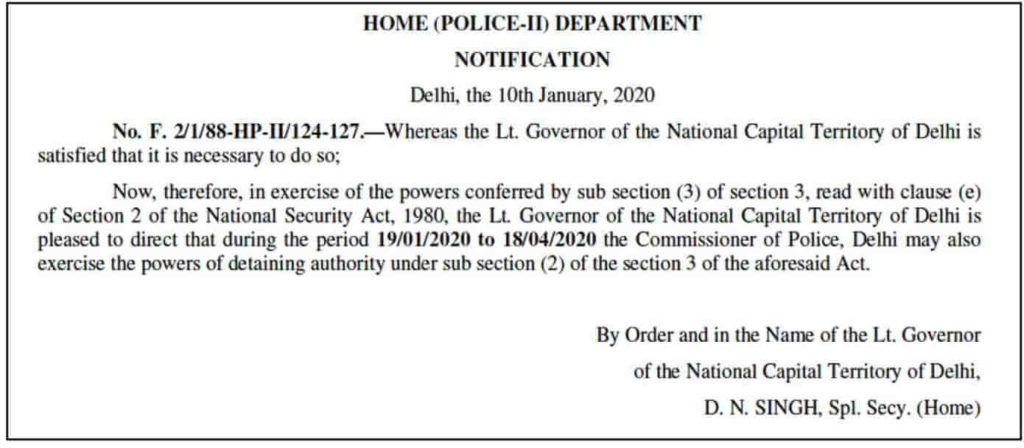
The subsection (3) of section 3, in the NSA Act, empowers the Central and State Governments to place the jurisdiction of a District Magistrate or Commissioner of Police under the NSA Act for a period of three months. The duration can be extended if deemed necessary by the State Government. In other words, the District Magistrate or Commissioner of Police can exercise certain powers under the NSA for that specified period.
Similar orders were issued in the months of January and July for the past 3 years – 2019, 2018 and 2017 – to extend certain powers under the NSA to Delhi police for a period of three months. The nature of the order issued on 10 January 2020 is found to be standard, similar to orders in the past three years. This validates that all such orders are routine, including the most recent one released on 10 January 2020.
What about other States?
The exercise of extending powers under the NSA is standard practice across states. We take the example of four states, namely, Andhra Pradesh, Telangana, Bihar, and Odisha to understand the frequency and nature of such orders in these states.
In Andhra Pradesh, the cities of Vijayawada and Visakhapatnam, have been put under NSA on a regular basis. For example, in 2019 itself, the order to put these cities under NSA was issued in January, April, July, as well as October. The case was similar for the previous years, 2018 and 2017 when multiple orders were issued throughout the year. It has to be noted that such orders were issued both during the term of the former CM Chandrababu Naidu and the current CM Jagan Mohan Reddy.
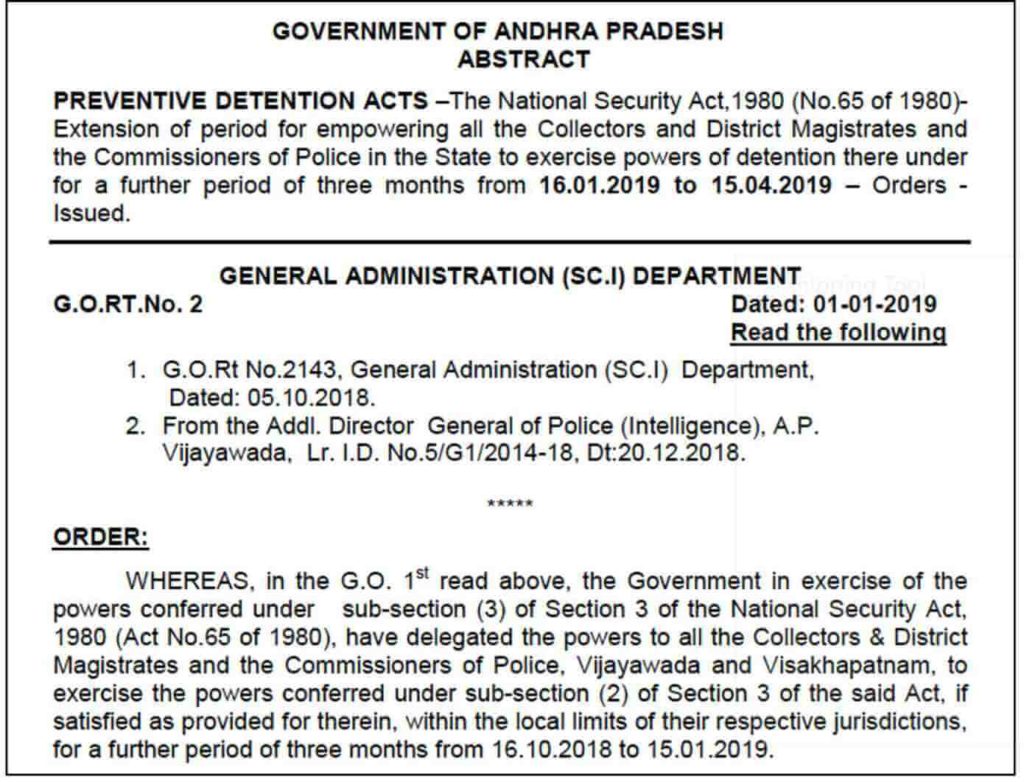
In Telangana, while there were no recent orders available in the public domain, the jurisdictions of Hyderabad and Cyberabad, have been put under NSA multiple times during 2014-16. One order was issued on October 2014, four orders in 2015, and one order on January 2016.
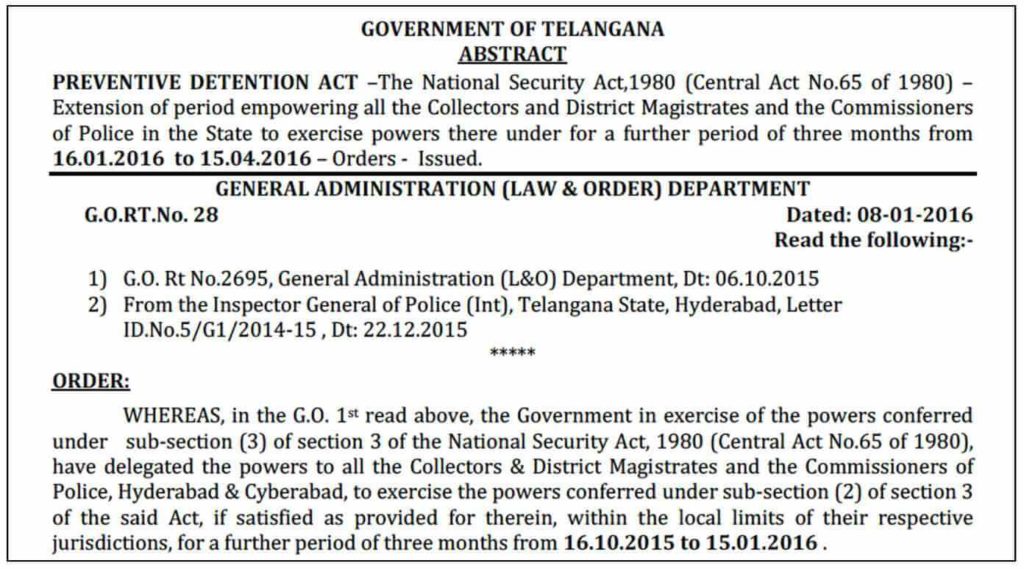
In Bihar, jurisdictions under all District Magistrates have been placed under the NSA Act from time to time. In 2019, the order to put all jurisdictions under NSA was issued in January, April and June. The case was similar for the precious years, 2018 and 2017, where two orders were issued throughout the year.
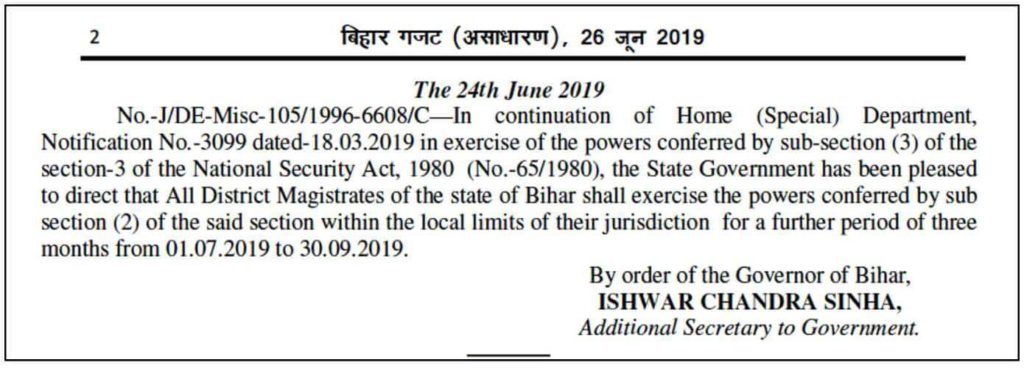
In Odisha, different jurisdictions have been placed under the NSA from time to time. Dhenkanal, Deogarh, and Angul were placed under NSA in 2014, 2013 and 2010, respectively.
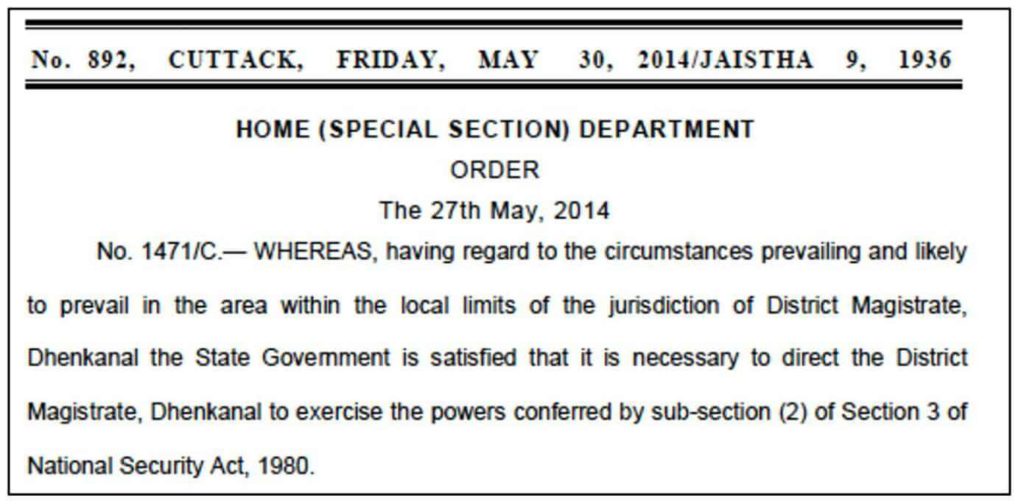
What does all this mean?
In view of NSA orders in different states and Delhi’s own history of NSA orders in the previous years, it is clear that the recent order was no different than the earlier ones. Moreover, the nature of the recent order is standard and similar to previous orders, and therefore, does not signify any departures from the routine quarterly order. Hence the claims made to suggest that the order in Delhi was in the wake of the CAA protests is False.
Featured Image: Delhi NSA Order Fact Check


